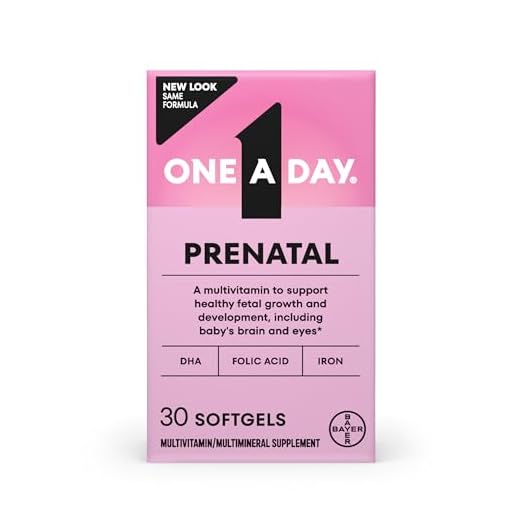







Prenatal vitamins can help reduce dizziness during pregnancy by addressing nutritional deficiencies, particularly iron deficiency, a common cause of anemia and lightheadedness. These vitamins contain essential nutrients like folic acid, calcium, and vitamin D, which support overall maternal health and circulation. Adequate hydration and a balanced diet are also vital; together with prenatal vitamins, they help stabilize blood pressure and improve energy levels. If you experience persistent dizziness, consult your healthcare provider for further guidance and management strategies. Understanding how these vitamins work can help you make informed choices for a healthier pregnancy journey.
Key Takeaways
- Prenatal vitamins provide essential nutrients like iron, which can prevent anemia and reduce dizziness associated with pregnancy.
- Folic acid in prenatal vitamins supports blood flow and may help alleviate dizziness symptoms during pregnancy.
- Calcium and vitamin D in prenatal vitamins help maintain bone health and energy levels, potentially minimizing dizziness risks.
- Omega-3 fatty acids in prenatal vitamins support fetal brain development and may also help mitigate dizziness.
- Regular intake of prenatal vitamins addresses nutritional deficiencies that can contribute to dizziness during pregnancy.
Understanding Dizziness in Pregnancy
Dizziness during pregnancy can be unsettling, and understanding its causes is vital for managing your health. During this time, your body undergoes significant physiological changes, including increased blood volume and lower blood pressure. These changes, particularly noticeable in the second trimester, can result in lightheadedness as blood vessels dilate and slow down blood return to your heart. Additionally, adequate vitamin intake is important during pregnancy, as certain vitamins can support overall maternal health and help mitigate symptoms like dizziness. Iron deficiency anemia is common during pregnancy due to increased iron demands, which can limit oxygen delivery to your brain, exacerbating dizziness.
Additionally, position changes—like standing up quickly or lying flat on your back—can cause rapid drops in blood pressure, leading to sudden feelings of dizziness, especially in later pregnancy stages. To help manage dizziness, staying hydrated is important. Dehydration can worsen symptoms, so aim to drink enough fluids throughout the day. Eating small, frequent meals also helps maintain stable blood sugar levels and supports overall hydration. By understanding these factors, you can take proactive steps to mitigate dizziness, ensuring a healthier pregnancy experience. Always consult your healthcare provider if you have concerns about your symptoms or if they persist.
Role of Prenatal Vitamins
Understanding the causes of dizziness during pregnancy highlights the significance of proper nutrition and supplementation. Prenatal vitamins play a fundamental role in this regard, as they provide essential nutrients like iron and folic acid that are critical for supporting ideal fetal development. Adequate iron intake helps prevent anemia, a common contributor to dizziness and lightheadedness. By supporting increased blood volume, iron guarantees that you maintain adequate hemoglobin levels, which is essential for oxygen delivery to your brain.
Folic acid, another key component of prenatal vitamins, aids in neural tube development and helps regulate blood flow, potentially reducing dizziness. This nutrient works to guarantee that your body can effectively transport oxygen, further mitigating feelings of lightheadedness. Additionally, calcium and vitamin D contribute to your overall health, supporting bone strength and minimizing risks associated with calcium deficiency, which can also lead to dizziness.
Taking prenatal vitamins consistently throughout your pregnancy aligns with recommendations from your healthcare provider. This proactive approach helps address potential nutritional deficiencies that can exacerbate dizziness symptoms and supports your overall well-being as you navigate this transformative period.
Key Nutrients to Consider
Selecting the right prenatal vitamins involves recognizing key nutrients essential for both maternal and fetal health. Iron plays a significant role in increasing red blood cell production, helping to prevent anemia—a common cause of dizziness during pregnancy. By ensuring adequate iron intake through prenatal vitamins, you can potentially reduce the risk of feeling lightheaded. Additionally, it's important to take into account vegetarian or vegan prenatal options if you follow those dietary preferences, as they can still provide the necessary nutrients.
Folic acid is another important nutrient included in prenatal vitamins, essential for fetal development and reducing the risk of neural tube defects. This nutrient indirectly supports maternal health, contributing to overall well-being during pregnancy.
Calcium is fundamental for maintaining bone health and may help counteract dizziness related to low blood calcium levels. Ensuring you get enough calcium can provide stability to your body's functioning.
Omega-3 fatty acids, particularly DHA, are significant for fetal brain development. They may also help mitigate dizziness linked to hormonal changes you experience during pregnancy.
Lastly, adequate vitamin D intake from prenatal vitamins supports calcium absorption and can enhance your energy levels, which may potentially reduce feelings of dizziness. By focusing on these key nutrients, you can support both your health and your baby's development effectively.
Causes of Dizziness During Pregnancy
Experiencing dizziness during pregnancy is a common concern, often rooted in several physiological changes. One primary factor is hormonal shifts that cause blood vessel dilation, leading to lower blood pressure and reduced blood flow back to your heart. This can result in feelings of lightheadedness, especially when you stand up quickly.
Anemia is another significant contributor to dizziness during this time, as your body demands more blood volume to support both you and your growing baby. Insufficient iron or folic acid, often found in prenatal vitamins, can exacerbate this condition. Additionally, the growing uterus can compress major veins, such as the inferior vena cava, hindering circulation and causing dizziness when you change positions.
Dehydration is also a key player, as your hydration needs increase during pregnancy. Failing to drink enough fluids can lead to further dizziness and negatively impact your health. Finally, orthostatic hypotension may occur when you suddenly change positions, resulting in a temporary drop in blood pressure and subsequent dizziness. Understanding these causes can help you manage this common issue more effectively.
Prevention Strategies for Dizziness
Dizziness during pregnancy can often be managed through effective prevention strategies. One essential approach is to guarantee adequate hydration; aim for at least 10 cups of fluids daily to prevent dehydration, a common contributor to dizziness. Incorporating an iron-rich diet can also support healthy blood flow and circulation, vital during pregnancy.
Eating small, frequent meals helps maintain stable blood sugar levels, minimizing lightheadedness. Additionally, standing up slowly can stabilize blood flow and reduce the risk of dizziness caused by sudden changes in blood pressure.
After the middle of the second trimester, avoid lying flat on your back, as this position can exert pressure on the inferior vena cava, negatively impacting circulation and potentially leading to dizziness.
Regular moderate exercise, as advised by a healthcare provider, not only enhances overall circulation but also contributes to better physical well-being throughout your pregnancy. These prevention strategies, combined with taking prenatal vitamins, can greatly mitigate dizziness, allowing you to enjoy a healthier pregnancy experience. Implementing these practices will help you maintain balance and stay active while maneuvering the changes your body undergoes during this time.
When to Seek Medical Help
Knowing when to seek medical help during pregnancy is essential for both your health and your baby's well-being. If you experience dizziness accompanied by severe symptoms such as vaginal bleeding, abdominal pain, blurred vision, or difficulty breathing, it's important to seek immediate medical attention, as these may indicate serious complications.
Persistent dizziness that doesn't improve with rest or hydration warrants a consultation with your healthcare provider to investigate underlying causes. Additionally, if you experience dizziness following a head injury or notice symptoms like confusion, difficulty speaking, or a racing heart, it's crucial to treat this as a medical emergency that requires urgent care.
Regular prenatal check-ups are significant to monitor your blood pressure and overall health, especially if you find yourself experiencing frequent dizziness. If dizziness occurs while driving or operating machinery, prioritize your safety by pulling over and consulting a healthcare provider to assess your health status. By staying vigilant and proactive about these symptoms, you can help guarantee both your safety and that of your baby throughout your pregnancy journey.
Risks of Nutrient Deficiency
Nutrient deficiencies during pregnancy can greatly impact both maternal health and fetal development, leading to potential complications such as dizziness. One of the most critical nutrients is iron; insufficient intake can result in anemia, where your body struggles to deliver adequate oxygen to the brain, causing dizziness. Folic acid is equally essential, as its deficiency is linked to neural tube defects in the fetus. Prenatal vitamins can help guarantee you meet these essential nutrient needs.
A lack of vitamin D has been associated with gestational diabetes, a condition that not only complicates pregnancy but can also contribute to dizziness. Additionally, low calcium levels can lead to maternal bone loss and hypertension, both of which may manifest as dizziness. Finally, inadequate omega-3 fatty acids during pregnancy can negatively affect fetal brain development, potentially leading to long-term neurological issues.
Tips for Taking Prenatal Vitamins
Taking prenatal vitamins is vital for supporting both your health and your baby's development during pregnancy. To minimize potential side effects, such as lightheadedness during pregnancy, consider taking your prenatal vitamins with food. This can help reduce nausea and stomach upset, which are common during this time. It's advisable to start taking prenatal vitamins at least one month before conception and continue throughout your pregnancy and breastfeeding to maintain ideal nutrient levels.
You may find that consuming small, frequent doses of a prenatal vitamin with iron can improve tolerance and lessen side effects like constipation and bloating. Always store your vitamins in a cool, dry place and choose reputable brands that have undergone third-party testing to guarantee quality and safety.
Regularly consulting with a healthcare provider about your prenatal vitamin formulation is important. They can help address any side effects you might experience, such as feeling lightheaded, and verify the vitamin meets your specific nutritional needs. Additionally, maintaining an iron-rich diet can complement your supplementation and further support your health during pregnancy.
Conclusion
In conclusion, prenatal vitamins can be an essential ally in combating dizziness during pregnancy by providing important nutrients. Think of them as your body's safety net, catching potential deficiencies that could lead to discomfort. While they may not eliminate dizziness entirely, proper nutrition plays a significant role in overall well-being. Remember to consult your healthcare provider for personalized advice and make sure you're on the right track to a healthier pregnancy. Stay informed and proactive for the best outcomes.






